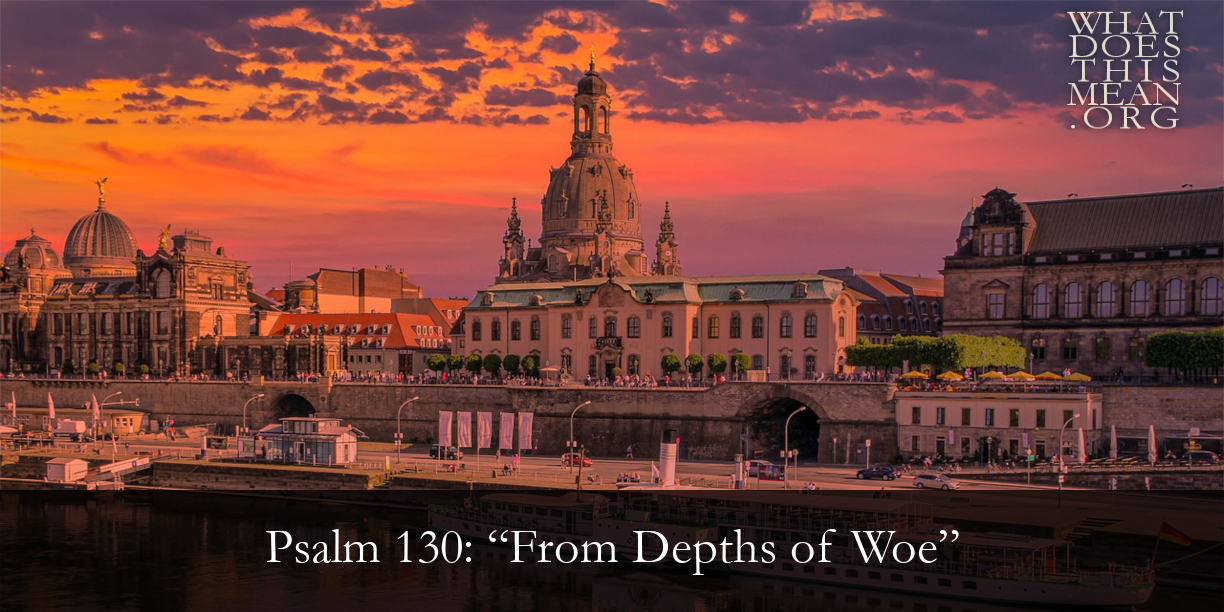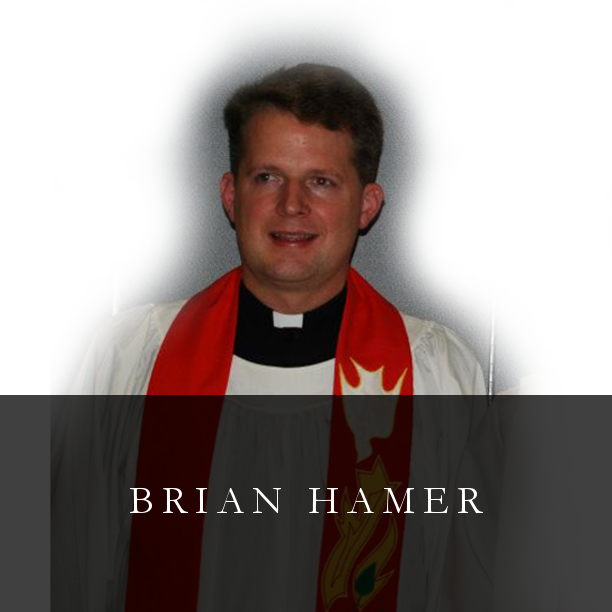but quicken with Thy plenteous compassion those who confess and return unto Thee.
The 130th psalm is a psalm of prayer that comes from the genuine Davidic devotion and understanding. It confesses that before God no one is righteous, nor may one become righteous by his own work and righteousness, but only through grace and forgiveness of sins, which God has promised. (Reading the Psalms with Luther, p. 314)
Luther’s hymn based on Psalm 130 reflects his desire for “as many songs as possible in the vernacular which the people could sing during Mass, immediately after the Gradual and also after the Sanctus and Agnus Dei” (Luther’s Works, 53:56). At the very time that he was revising the Latin Mass (1523), he asked George Spalatin (1484–1545), Court Chaplain to Frederick the Wise (1486–1525), to help him “turn a psalm into a hymn as in the enclosed sample of my work,” this “enclosed sample” presumably being “From depths of woe” (Luther’s Works, 53:221). The hymn (please see the translation below the first video link) was originally written in four stanzas, but expanded to five stanzas to help emphasize the Reformation themes of faith, grace, and the Word of God. The entry in Julian’s Dictionary of Hymnology ranks this hymn among the finest metrical psalms in German. The most talented composers seem to agree, having set it to music.
Johann Walter (1496–1570) is better remembered as a composer than as a hymn writer, an ‘inversion’ of Luther’s own reputation. Even though Walter worked and lived mostly in Torgau (along with some time in Dresden), he is rightly considered Luther’s “right-hand man” in sacred music. In addition to voluminous correspondence and collaborations with Luther, Walter spent three weeks in Luther’s home in Wittenberg in 1524, helping to adapt the old church music to a Lutheran context and harmonizing hymns tunes in five parts. Walter E. Buszin describes Walter’s approach to Psalm 130, known in German as Aus tiefer not:
The cantus firmus [melody] is very plain and to the point, totally devoid of melismatic figuration or other ornamental effects. The tenors carry the cantus firmus and in the entire composition the cantus firmus is the pivot. In fact, one gains the impression that in this type of composition the cantus firmus draws the other voice parts to itself with centripetal force. (Theodore Hoelty-Nickel, ed., The Musical Heritage of the Church, III:92)
| 1 From depths of woe [Aus tiefer not] I cry to Thee Lord, hear me I implore Thee. Bend down Thy gracious ear to me, My prayer let come before Thee. If Thou rememb’rest each misdeed, If each should have its rightful meed, Who may abide Thy presence? 2 Thy love and grace alone avail To blot out my transgression; The best and holiest deeds must fail To break sin’s dread oppression. Before Thee none can boasting stand, But all must fear Thy strict demand, And live alone by mercy. 3 Therefore my hope is in the Lord, And not in my own merit; My soul shall trust His gracious Word, To them of contrite spirit: That He is merciful and just; This is my comfort and my trust. His help I wait with patience. 4 And though it tarry till the night And till the morning waken, My heart shall never doubt His might, Nor count itself forsaken. Do thus, O ye of Israel’s see, Ye of the Spirit born indeed; Wait for your God’s appearing. 5 Though great our sins and sore our woes, His grace much more aboundeth; His helping love no limit knows, Our utmost need it soundeth. Our Shepherd good and true is He, Who will at last His Israel free From all their sin and sorrow. (The Lutheran Hymnal 329) |
It is obvious that for 57 years Schütz served faithfully at this court of the elector of Saxony and produced many a piece of lovely song such as occasional tafelmusik [“table music,” i.e., music for a feast] and especially those composed for the court chapel. His sincere and splendid melodies for the psalms of David are still used continually each week, to say nothing of his other great works that are well known both within and beyond Germany. (Robin A. Leaver, Music in the Service of the Church: The Funeral Sermon for Heinrich Schütz (1585–1672), p. 25)
All four of these reasons resonate in your liturgical and sacramental life this Lent. Psalm 130 provides great comfort for you who mourn your sins and remember, in the words of the Ash Wednesday liturgy, “Dust you are, and to dust you shall return.” Aus tiefer not gives you voice to place your petitions at the foot of the crucified One, in Whom is plenteous redemption. “From depths of woe” is fitting not only for the actual Christian funeral; it is also fitting for the ‘funeral’ of your sins as you kill them by confessing them. Singing this hymn through the Lenten journey, you learn yet again that the daily pattern of the Christian life is death and resurrection—death to your multitude of iniquities and to everything in you that is not of Christ, and new life as you behold God’s plenteous redemption in the life-giving cross, on which was hung the salvation of the world.
O Lord, we beseech Thee: let Thy merciful ears attend to the prayer of Thy humble servants, because with Thee there is forgiveness of sins; that thou mayest not mark our iniquities, but vouchsafe to us Thy mercies; through Jesus Christ our Lord, who liveth and reigneth with Thee and the Holy Ghost, ever one God, world without end. Amen. (from The Brotherhood Prayer Book, p. 325)
Extra Choral Credit: Hearing J. S. Bach’s Organ Preludes on Aus tiefer not
BWV687
BWV 868



 RSS Feed
RSS Feed
